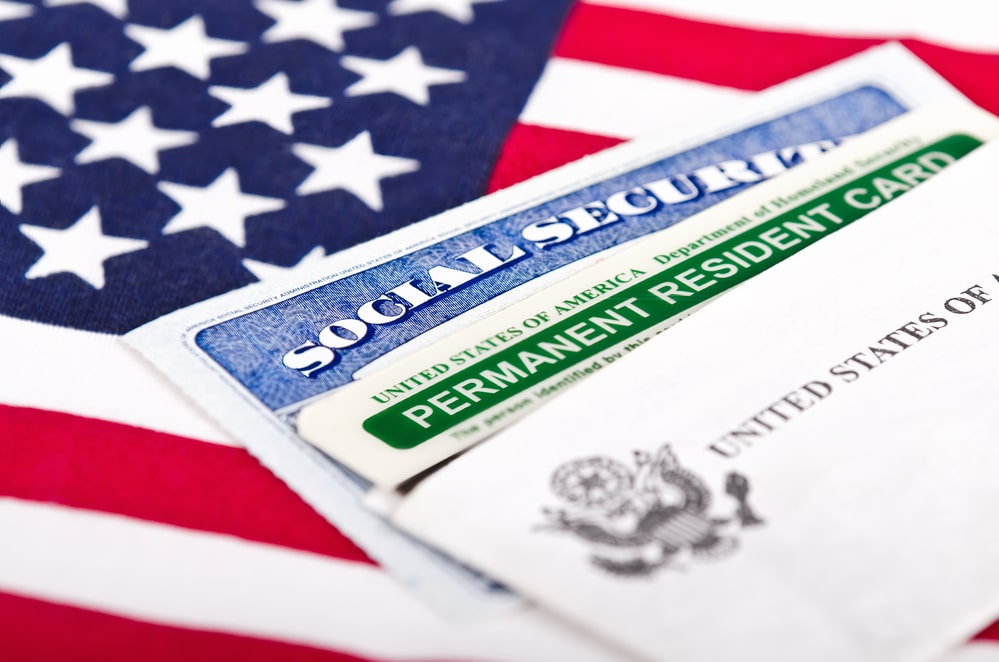
Obtaining lawful permanent residence in the United States can be one of the most important steps in your life. A green card allows you to live and work permanently in the country, travel freely, and eventually apply for citizenship. However, the application process involves detailed paperwork, strict requirements, and potential pitfalls that can delay or derail your case.
Our friends at Bolour / Carl Immigration Group, APC discuss how even small mistakes can result in denials or significant delays. A green card lawyer guides you through the process, prepares your documentation properly, and helps avoid common errors that lead to problems. These attorneys understand current immigration laws and how to present your case in the strongest possible way.
Different Pathways To Permanent Residence
Several routes exist for obtaining a green card, and each has its own requirements and procedures. Family-based immigration allows U.S. citizens and permanent residents to sponsor certain relatives. Employment-based green cards go to workers with specific skills or job offers from U.S. employers.
Other pathways include the diversity visa lottery, asylum and refugee status, special immigrant categories, and the Violence Against Women Act provisions. According to U.S. Citizenship and Immigration Services, processing times vary significantly depending on which category applies to your situation and your country of origin.
Family-Based Green Card Applications
U.S. citizens can petition for spouses, children, parents, and siblings. Permanent residents can sponsor spouses and unmarried children. Immediate relatives of U.S. citizens face no numerical limits on visas, while other family preference categories have annual caps that create waiting periods.
The sponsoring family member must file Form I-130 to establish the relationship. You’ll need to prove the relationship is genuine through documents like birth certificates, marriage certificates, and evidence of ongoing family connections. Financial requirements also apply, as sponsors must demonstrate they can support the immigrant at 125% above the poverty line.
Common Family-Based Application Issues
Immigration officials scrutinize marriage-based green card applications carefully to detect fraud. You need substantial evidence showing your marriage is real, not just a way to obtain immigration benefits. This includes joint financial accounts, shared property, photos together, and statements from people who know you as a couple.
Previous immigration violations, criminal history, or periods of unlawful presence can complicate family-based cases. Some issues trigger bars to admission that require waivers. Understanding which waivers might apply and how to present a strong case takes specific knowledge of immigration law.
Employment-Based Green Cards
Employment-based immigration divides into five preference categories. EB-1 covers priority workers with extraordinary abilities, outstanding professors and researchers, and certain multinational executives. EB-2 includes professionals with advanced degrees or exceptional ability. EB-3 applies to skilled workers, professionals, and other workers.
Most employment-based green cards require labor certification through the PERM process. Your employer must prove no qualified U.S. workers are available for the position. This involves advertising the job, documenting recruitment efforts, and showing you’re qualified for the role.
When Legal Guidance Makes A Difference
Some straightforward cases might not require attorney assistance. However, many situations benefit significantly from professional legal help. You should consider hiring representation if:
- You have any criminal history, even minor offenses
- You’ve previously been denied a visa or green card
- You’ve overstayed a visa or been unlawfully present
- Your case involves complicated family relationships
- You need a waiver for inadmissibility
- Your employer is sponsoring you through PERM
- You’re applying based on asylum or refugee status
Immigration law changes frequently. What worked for someone else might not apply to your situation. Attorneys stay current with new policies, regulations, and case law that affect applications.
The Cost Of Mistakes
Filing errors, missing documents, or incorrect information can have serious consequences. Simple mistakes might just delay your case for months while you correct problems. More serious errors could result in denial of your application or even trigger removal proceedings.
Some people try to save money by handling applications themselves, only to end up paying more later to fix problems. A denied application often means starting over, paying fees again, and potentially waiting longer due to processing backlogs. Getting it right the first time typically costs less than correcting mistakes.
Documentation Requirements
Green card applications require extensive supporting documents. Birth certificates, marriage certificates, divorce decrees, police clearances, medical examinations, financial records, and employment letters are just the beginning. Documents from foreign countries often need official translations.
Missing or inadequate documentation is one of the most common reasons for delays and denials. Knowing exactly what USCIS needs and how to present it properly makes a significant difference in processing times and approval rates.
Adjustment Of Status Vs. Consular Processing
If you’re already in the United States, you might apply for adjustment of status to become a permanent resident without leaving the country. If you’re outside the U.S., you’ll go through consular processing at a U.S. embassy or consulate in your home country.
Each process has advantages and disadvantages depending on your circumstances. Adjustment of status allows you to remain in the U.S. during processing and typically lets you obtain work authorization while waiting. Consular processing can sometimes be faster but requires you to attend an interview abroad.
Understanding Processing Times And Backlogs
Green card processing times vary dramatically based on several factors. Your category, country of birth, and where you file all affect how long you’ll wait. Some categories have years-long backlogs due to annual visa limits.
The USCIS website provides estimated processing times for different types of applications at various service centers. However, these are just estimates. Your case might take longer or shorter depending on its specific circumstances and any issues that arise during processing.
Preparing For Your Immigration Interview
Most green card applicants attend an interview with USCIS or a consular officer. These interviews assess whether you meet eligibility requirements and verify the information in your application. Officers ask about your background, relationship history, employment, and plans in the United States.
Preparing thoroughly for this interview is essential. You need to know your application inside and out and be ready to answer questions truthfully and clearly. Officers sometimes ask questions designed to catch inconsistencies or detect fraud. Being well-prepared helps you present your case confidently.
Moving Forward With Your Application
Obtaining permanent residence is a significant goal that affects your entire future. The application process requires careful attention to detail, thorough documentation, and understanding of current immigration laws and policies. Small mistakes can have big consequences, while a well-prepared application moves through the system more smoothly.
If you’re considering applying for a green card or have questions about your eligibility, don’t try to figure out this complicated system alone. Immigration law changes regularly, and what you read online might be outdated or not apply to your specific situation. Connect with an attorney who focuses on immigration cases and can evaluate your circumstances individually. Getting proper guidance from the start gives you the best chance of achieving your goal of permanent residence in the United States.
